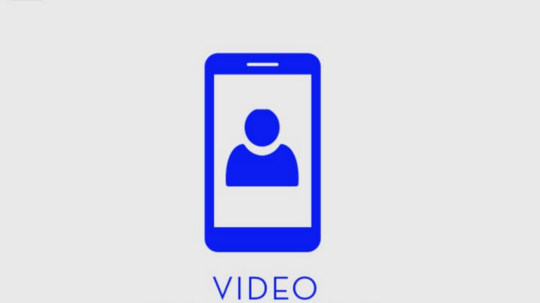
Anyone who's traveled abroad knows that there are endless situations where a language barrier can prove to be, at best, an (difficulty communicating with the hotel clerk) and, at worst, dangerous (can't explain symptoms to a doctor).
For those dealing with immigration authorities, whether at the airport or during a citizenship test, that language barrier can even impact long-haul travel and immigration status, particularly in light of the amended travel ban, which was scheduled to go into effect March 16 before federal judges put the ban on hold.
With this in mind, a Chicago startup that offers on-demand interpreters bumped up their release date in hopes of helping anyone who runs into issues with travel and needs access to translation services.
It's called Interpreter Tap. It works similar to many on-demand apps on the market, only instead of ordering takeout or summoning a dry cleaning service, users can access an interpreter the minute they need one.
Users select the language they need interpreted (currently they offer ten languages, including American Sign Language, Arabic, Spanish, Polish, Hindi, French, Farsi, Mandarin, Somali and Tagalog) and can add notes about their situation or communication problems. Interpreter Tap will connect them with an interpreter from their database within a minute, either through a phone call or video call. The startup also offers translation for documents. The translation services take place over the phone.
"We understand there’s a language barrier," said founder Victor Arellano. "If you travel to another country you’re going to face it. We want people to know there’s this tool, you can use it, and you can feel comfortable. The purpose for us is just to help someone."
Interpreters are vetted through a test they have to take when they sign up (the startup has certified interpreters on their team who help with this process) and through a quality rating system, similar to ridehailing apps. Interpreters are paid $.50 per minute, and $.75 per minute if they're a certified interpreter. They have approximately 20 interpreters on the app now, and are in the process of recruiting more.
In an early test, they were able to help an elderly man who spoke Bosnian get the social security benefits he hadn't received for three months due to a language barrier. The call took just 15 minutes.
Currently users don't have to pay for the service--Arellano and his team pushed up the release to drum up interest and provide a service to anyone impacted by the travel ban. But starting in May, when Interpreter Tap officially launches, they'll pay a fee per minute to use the service (the price is yet to be determined Arellano said, but he estimated $2 to $2.50 per minute).
Arellano, who previously worked in real estate and tech, spent six months shadowing interpreters to better understand the problems that people face in these situations. One day he joined an interpreter who was working with someone taking a citizenship test, and was shocked to see that those administering the test would simply ask the waiting room if anyone spoke a given language if an interpreter is needed (you're allowed to have an interpreter in some situations, it just can't be a friend or family member). He felt there had to be a better way to get people the vetted translation services they need.
Interpreter Tap also hopes to help in more ways than one. Arellano previously worked on tech projects for people with disabilities, and he's working with organizations that advocate for those with disabilities to recruit interpreters.
We want to make the app accessible for everyone
"We want to make the app accessible for everyone," he said. "Someone in a wheelchair can’t be an Uber driver. But how about, if they know another language and can speak it fluently, why couldn’t they be an interpreter for Interpreter Tap?"
Interpreter Tap has seven team members, all volunteers at the moment, as the startup is bootstrapped. They're hoping to connect with attorneys and other professionals working with those impacted by the travel ban to expand the use of their service. There have been a flurry of tech solutions to issues posed by the immigration ban, such as "panic button" app Notifica that sends pre-written messages to loved ones and lawyers in case of an immigration raid. Chicago legal tech startups, including Paladin, Envoy and Road to Status have seen an influx of demand since the first immigration executive order.
"At the end of the day, we want to help people," Arellano said. "With everything that’s going on and the chaos that happened last month, and the new [travel ban] that takes effect this month, my team is like ‘If someone needs to use this service, let’s give them access to the software.’”








